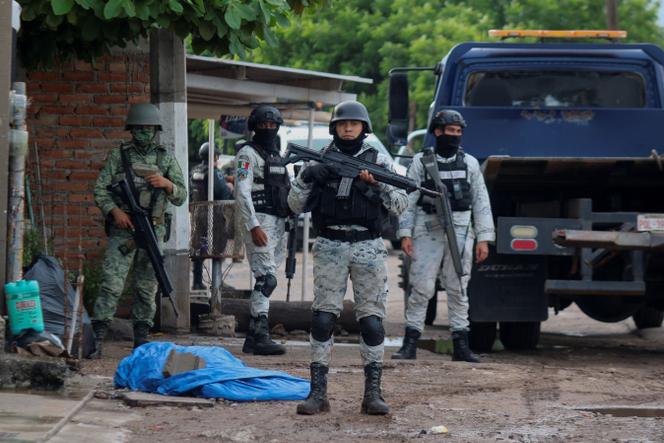


For over a week, two factions of the Sinaloa cartel have been engaged in violent conflict in Culiacán, the capital city of Culiacán municipality, one of the 18 municipalities in Sinaloa state. Hundreds of heavily armed civilians have been patrolling the city streets and its outskirts where they have been fighting. Authorities count at least 39 people killed – including two soldiers – 37 forced disappearances and 13 clashes with the army. Highways have been blocked, trucks have been set on fire, dozens of cars have been stolen and hackers have taken over two local government websites in order to spread bellicose propaganda.
"People are very scared, shopping centers are empty, delivery services are suspended, schools are closed and public transport has barely started up again," said Ismael Bohorquez, the director of Ríodoce, a regional weekly newspaper based in Culiacan. "There's been an increase in clashes. The two groups are kidnapping a lot of people. There are a lot of people missing, but they are still testing each other, and we can expect fiercer battles in future. For now, there hasn't been a massive assault like in 2008." Bohorquez was referring to the internecine war that broke out when the Sinaloa cartel split 16 years ago, resulting in over 5,000 deaths.
At the root of this new explosion of violence is the void left by Ismael Zambada García, 76, alias "El Mayo," one of the founders and leaders of the Sinaloa cartel, after his capture by US authorities on July 25 in circumstances that remain unclear. In a letter distributed to the press by his lawyers on August 6, Zambada claimed that Joaquín Guzmán López, one of the sons of notorious drug trafficker Joaquín "El Chapo" Guzmán, kidnapped him and made him board a plane by force to hand him over to the US justice system himself. Another version states that Zambada negotiated his surrender with the US authorities.
Taken by surprise by "El Mayo's" arrest, the Mexican government deployed an additional contingent of 200 troops to Culiacán on July 28 in the hope of preventing a war between the branch of the organization run by "El Chapo's" sons (nicknamed "Los Chapitos") and the one now headed by "El Mayo's" son over the remnants of the criminal empire that has been built over more than four decades.
Unfortunately, on Monday, September 9, the two rival groups and their allied factions launched hostilities that escalated in intensity. The governor of Sinaloa, Rubén Rocha Moya, suspended schools in four towns, urged Culiacán residents to go out only when necessary, and canceled the public celebration of the "Cry of Dolores" on September 15, the eve of Mexico's Independence Day. In an admission of powerlessness, the commander of the third military region acknowledged on Monday that the violence in Sinaloa will only end when the groups stop fighting each other.
You have 44.82% of this article left to read. The rest is for subscribers only.
